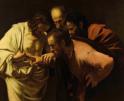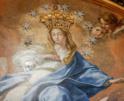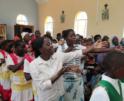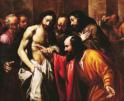
Faith
The Christmas 2019 website of the U.S. Conference of Catholic Bishops says this: "The liturgical season of Christmas begins with the vigil Masses on Christmas Eve and concludes on the feast of the Baptism of the Lord.
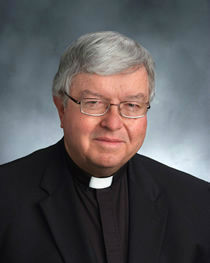
Doyle
Q. At my previous parish, we said that the end of the Christmas season was the feast of the Epiphany (the three Wise Men). My current parish, though, says that the Christmas season concludes a week later on the feast of the Baptism of the Lord. Which one is right? And if it's the latter, what does the baptism of Jesus by John the Baptist in the Jordan River have to do with Christmas? (New Middletown, Indiana)
A. Many people do put away their Nativity creches and other Christmas decorations following the Epiphany, leading to a common assumption that the Christmas season closes with that feast. But liturgically, your current parish is correct.
The Christmas 2019 website of the U.S. Conference of Catholic Bishops says this: "The liturgical season of Christmas begins with the vigil Masses on Christmas Eve and concludes on the feast of the Baptism of the Lord. During this season, we celebrate the birth of Christ into our world and into our hearts, and reflect on the gift of salvation that is born with him ... including the fact that he was born to die for us."
The baptism of Jesus marks a sharp line of demarcation: Previous to that, he was viewed simply as a carpenter from Nazareth. But with his baptism, his public life begins as he proclaims with his words and actions the arrival of the reign of God; with the baptism in the Jordan, the Holy Spirit begins to lead Jesus in a new way.
The second part of your question, though, is a bit more difficult: What does Christ's baptism have to do with Christmas? Here, it's helpful to consider something Pope Benedict XVI said in a homily on the feast of the baptism in 2013.
He explained that both the nativity of Jesus and his baptism show the savior's solidarity with us, the humble immersion in our human condition that allowed Christ to understand our weakness and frailty. Even though Jesus had no need for baptism as a sign of repentance, he allowed it to happen. In the words of Pope Benedict, "He was moved to compassion, he chose to 'suffer with' men and women, to become a penitent with us."
Q. Our new pastor is very focused on making sure that everything at Sunday Mass is done strictly according to the rubrics. For example, when it is time for Communion he gives the host to each of the extraordinary ministers of holy Communion, who must stand back from the altar; then the deacon gives the cup to each one.
Then the pastor passes out the ciboria one by one, and he and the deacon hand out the cups one by one. No extraordinary minister is allowed to pick up anything off the altar, so there is a lot of walking back and forth. All this, of course, takes time; sometimes we are almost finished the Communion hymn before anyone in the pews has received Communion. Is there some way to speed things up without violating the rubrics?
Also, if people come up to receive Communion without holding their hands in the right way, the pastor stops and tells them what to do. That can be embarrassing; is there a better way to do that? (Richmond, Virginia)
A. Actually, your pastor is following what is the prescribed procedure. The U.S. Conference of Catholic Bishops in its liturgy guide says: "After the priest has concluded his own Communion, he distributes Communion to the extraordinary ministers, assisted by the deacon, and then hands the sacred vessels to them for distribution of holy Communion to the people."
In a further explanation of that, the guidelines for the Archdiocese of Washington state that "extraordinary ministers should not take the sacred vessels from the altar themselves, but should be handed them by the priest or deacon."
All of this, of course, is to assure that the Eucharist is treated with the utmost reverence, and it doesn't concern me that this "takes time." But why not wait to start the Communion hymn until the people in the pews have begun to receive?
As for those who "grab" the host instead of receiving it in their open palm, I agree with you that there's a better way to prevent that. Why not have the priest explain the proper manner from the pulpit occasionally, rather than single out any individual for attention?
- Father Kenneth Doyle is a columnist for Catholic News Service
Recent articles in the Faith & Family section
-
Wounds, not scarsJaymie Stuart Wolfe
-
A special collection in the liturgy libraryFather Robert M. O'Grady
-
Witness to a Transfiguration in KenyaMichele Miers
-
Understanding the ScripturesScott Hahn
-
'Cabrini' does extraordinary job of bringing saint to lifeBishop Nicholas DiMarzio

